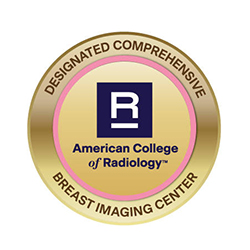
With recognized radiologists specializing in breast imaging, the most advanced technology and a focus on patient-centric, personalized care and communication, the UTMB Health Comprehensive Breast and Imaging Centers are a valuable regional community resource.
At our centers, top-notch university physicians employ the latest, most sophisticated diagnostic and therapeutic technology, including:
- 3D Mammography
- Digital mammography
- MRI
- Diagnostic ultrasound
- MRI-guided biopsy
- Ultrasound biopsy
- Stereotactic biopsy
- Bone Densitometry (DEXA)
- Self-referral screening mammograms
The breast imaging program at UTMB has built a reputation for providing excellent and compassionate care to breast cancer patients throughout the region. The hard work and dedication of the breast imaging team has resulted in national recognition. The program has been designated a “Center of Excellence” by the American College of Radiology. UTMB was one of the initial two programs in the Houston area to receive this prestigious honor, and one of the first in Texas to receive the designation.
Like their center colleagues, the Breast Imaging team offers a collaborative approach to evaluating breast health and treating breast cancer patients. The program is:
-
fully accredited in mammography, stereotactic breast biopsy and breast ultrasound;
-
equipped with state-of-the-art imaging equipment for mammography, breast ultrasonography, breast MRI, and featuring the ability to perform image guided core needle biopsies using mammography, ultrasound, or MRI–whichever is needed to give the most accurate results and is easiest on the patient;
-
staffed by expert faculty breast imaging physicians, and supported by excellent mammography technologists and quality assurance technologists with registries in their fields.